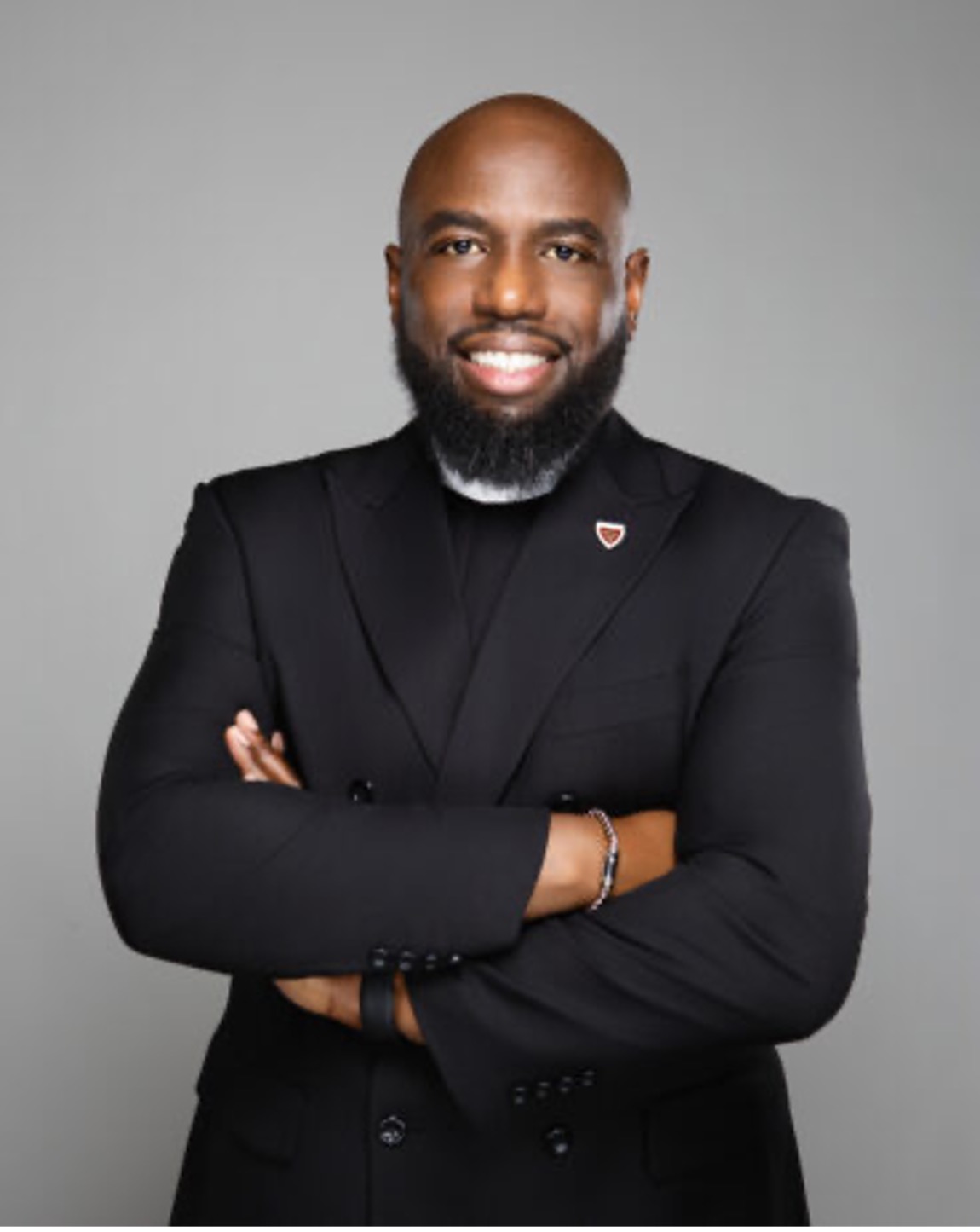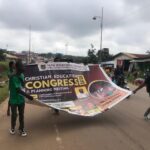Dr. Carlos W. Perkins, Associate Director of Engagement, Lake Institute on Faith & Giving
Over the last 18 months, I have had the privilege of facilitating multiple cohorts of the Executive Certificate in Religious Fundraising (ECRF) at the Lake Institute on Faith & Giving, focusing on Black Christian leaders across the United States. These cohorts were facilitated by me alongside outstanding adjunct faculty, whose expertise and lived experience enriched each session. These cohorts have been transformative—not only for the participants and their congregations—but also for my own understanding of what it means to cultivate generosity, leadership, and legacy within Black faith communities.1
Participants consistently affirmed the relevance of the ECRF to their contexts. While the Lake Institute has robust data demonstrating the program’s effectiveness in galvanizing philanthropic consciousness among religious leaders, hearing firsthand testimonials from Black pastors and congregational leaders was striking. Participants often describe the program as “transformative,” “game-changing,” and deeply meaningful for both their personal leadership and congregational culture.
Several features of the ECRF were highlighted repeatedly as particularly effective:
- Participants noted that ECRF’s reframing of “giving” from obligation to generosity allowed leaders to inspire generosity without guilt or fear, fostering a culture of abundance and vision. Several participants shared that the program helped them see that fundraising is not about guilt or shame—it’s about empowering our community to invest in God’s work with joy.
- Participants praised the ECRF for providing language, frameworks, and theological grounding to preach and teach about generosity in ways that are faithful, culturally resonant, and spiritually inspiring.
- Participants repeatedly cited the high quality of instruction as a key factor in the program’s effectiveness. As facilitators, we brought theological insight, practical strategies, and lived experience in ministry and philanthropy that resonated deeply with participants. This combination of scholarship and praxis created an environment where leaders could translate learning into tangible action in their congregations.
- Perhaps most striking was the power of all-Black learning spaces. Participants consistently highlighted that engaging in a cohort exclusively with other Black leaders allowed them to avoid “code-switching” and enter fully into the work at hand. This affirms the value of intentionally designing programs that honor the lived experiences, challenges, and leadership contexts of Black faith leaders.
We have also reflected critically on what may be missing from the curriculum and how the Lake Institute can provide unique value. One emerging area of opportunity is deeper engagement with the theological dimensions of generosity analyzed and reported by researchers in Black congregational settings. While the program equips leaders with fundraising strategies, participants frequently desire more exploration of the spiritual, biblical, and justice-oriented aspects of giving—particularly as they relate to the Black church and community.
To address this need, the Lake Institute has initiated the Spirit of Abundance: Faith, Flourishing, and the Economics of Belonging working group. This initiative centers Black theological perspectives and the lived experience of Black congregations to explore generosity as a practice of beloved community, economic justice, and divine trust. Topics include economic discipleship, financial liberation, and teaching stewardship in ways that affirm abundance over scarcity. By connecting theological reflection with practical fundraising skills, we aim to cultivate a holistic philanthropic imagination that sustains the prophetic witness of Black faith communities.
One of the most profound lessons from these cohorts is the recognition that generosity in the Black church is not merely transactional—it is transformative. Black faith leaders are teaching that giving is both a spiritual discipline and a practice of communal care. In congregations across the country, generosity is a tool for teaching stewardship, building economic resilience, and fostering a sense of belonging. Leaders shared stories of congregants supporting one another, engaging in community development, and embracing stewardship as a form of spiritual expression. These examples remind us that the work of cultivating philanthropic consciousness is inseparable from the broader mission of the church.
Implications for the Field and Next Steps
Reflecting on these cohorts, key implications emerge for the Lake Institute and for the broader field of religious philanthropy:
- Invest in Access: Expanding financial support and reducing barriers to participation is essential for ensuring that Black leaders can fully engage with the ECRF. Investments in scholarships, travel support, and flexible participation options will allow the program to reach more leaders and congregations.
- Cultivate Networks and Ongoing Learning: Alumni networks, online forums, and peer mentoring structures are critical for sustaining the impact of the program. Leaders value opportunities to share challenges and successes, making ongoing connections a priority for program development.
- Center Theological and Cultural Relevance: All learning opportunities should reflect the lived experience of Black faith communities, integrating religious teaching, cultural wisdom, and theological reflection on generosity. Programs that honor these contexts deepen both learning and practical impact.
- Expand Awareness and Advocacy: Building awareness of the ECRF among Black Christian leaders and congregations is vital. Relational promotion, personal invitations, and the cultivation of program ambassadors will enhance reach and engagement.
- Partner Across Sectors: By inviting theological education, organized philanthropy, and denominational bodies to engage with the ECRF, we can extend its influence and integrate fundraising literacy and stewardship principles into broader leadership formation programs.
An Invitation to Participate
The work of fostering generosity, leadership, and legacy in Black Christian communities is ongoing, and the Lake Institute remains committed to partnering with leaders in this mission. We invite Black Christian leaders, alumni of the ECRF, and those interested in strengthening congregational philanthropy to participate in these conversations. We also encourage seminaries and philanthropic organizations to consider ways to support this initiative, whether through funding, curricular integration, or collaborative programming.
Generosity, leadership, and legacy are inseparable in the Black church. As we have seen through the ECRF cohorts, teaching leaders to cultivate a philanthropic mindset strengthens congregational culture, enables faithful stewardship, and fosters economic and spiritual flourishing. By continuing to invest in these leaders, providing spaces for learning and reflection, and amplifying their voices, we contribute to a future where Black faith communities are empowered to steward their resources with vision, courage, and abundant faith.
The ECRF experience with Black Christian leaders has reaffirmed a central truth: generosity is more than a financial transaction; it reflects God’s abundance, a marker of faithful leadership, and a pathway for sustaining legacy.
1 These insights and learnings are informed by Saler, Robert (2024). Exploring the impact of the Executive Certificate in Religious Fundraising on Black congregational leaders [Unpublished focus group research report]. Lake Institute on Faith & Giving.
Reprinted with permission; originally published here: https://lakeinstitute.org/resource-library/insights/october-7-2025/#main-article





